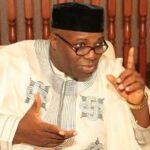
Most parents of children with special needs often struggle with the decision to send their children to traditional school settings because of peer pressure. Unfortunately, such parents are often unaware that special schools exist, a retired teacher in Nasarawa State has said.
He said special schools are expensive to manage because they provide individualised education, addressing specific needs and help pupils in ways that mainstream schools might not be able to.
He said the special needs varied in severity, but that children with autism, blindness, deafness, developmental delay, emotional disturbance, hearing impairment and intellectual disability might be considered to have special needs.
Others are those with multiple disabilities; orthopaedic and other health impairments, specific learning disability, speech or language impairment, traumatic brain injury and visual impairment.
He added that the pupil-teacher ratio in special schools is low because teachers cater for particular types of disability and work with limited special needs education equipment.
This reaction and analysis came up when recently President Muhammadu Buhari commissioned the Comprehensive Special School, Lafia, built by the Nasarawa State Government to cater for children with special needs in the country.
President Buhari said the school was a demonstration of “our collective ambition” to uplift the standard of living of all Nigerians through social investment policies, and that the school would cater for the deaf, the blind and other physically challenged.
“Indeed, this is a clear example of our inclusive policy where no child, man or woman will be left behind,” he said.
The president pointed out that the school would give hope to a key segment of the society that was ignored and neglected by previous governments, saying people living with disabilities must be helped to develop and become self-reliant.
Earlier, Governor Umaru Tanko Al-Makura of Nasarawa State had said the school would provide children with disabilities equal opportunities and empower them to broaden their vision to develop their talents, creativity and support their full potentials to capacity to compete favourably with others in all spheres of human endeavour.
Gov. Al-Makura said, “This effort is to remove the burden of educational expenses off the parents of these wonderful children. By extension, it is aimed at ensuring that children with disability are given equal opportunities with their able counterparts; I dare say that there is always ability in disability.”
The governor said in the quest to ensure inclusiveness in governance, opportunities were opened for the vulnerable members of the society; especially the disabled.
He said the school would concentrate on providing individual care to children with learning difficulties, specifically special needs in areas of vision impairment, hearing impairment, physically challenged (crippled) and those with Cerebral Palsy Syndrome, Autism and Down Syndrome (DS).
“To ensure maximum benefit and inclusiveness, we have made their education free, from primary to tertiary levels,” he said.
He said the Comprehensive Special School, Lafia, would be affiliated with world renowned centres of excellence for people with disabilities like the Gallaudet University and Perkins University, all in the USA, where children would benefit from intellectual resources and global best practices of seasoned professionals on disability management and education, and to also access further opportunities.
He further said the school was equipped with modern facilities to ease teaching and learning of children with special needs and that special education teachers’ with requisite qualification and disposition to teach were recruited.
He added that similar schools were established in Gudi and Keffi towns in the state and a comprehensive curriculum and modules on special education were developed for the schools “the first of its kind in Nigeria.”
The state Commissioner for Special Education, Science and Technology, Professor Jonathan Ayuba, said the school was built and equipped with facilities to deliver education to pupils with special needs. He said special classroom infrastructure was provided while the environment was designed to support and inspire students to achieve such as learning aids, books and wheelchairs.
The commissioner said the school was designed to provide sound education and discipline from pre-primary to secondary levels with qualified teachers and care givers.
Ayuba said the school had boarding facilities for all categories with the exception of kids with complex needs and those with autism who often reacted aggressively.
Already, over 800 children with different needs have secured admission into the school and a number of international institutions will provide enhanced technical skills to teachers to meet international standards.
The Minister of Education, Malam Adamu Adamu, said on its part, the Federal Government would provide a better learning environment for children with special needs, from pre-primary school up to university.
“We want to have total inclusion so that all people with disability are trained and get the best in life,” he said, and added that a joint consultative committee on special education had been set up to coordinate programmes for the education of persons with special needs.
The minister said about 50 per cent of 20, 000 students with special needs at different levels of education were integrated into the regular school system because special learning facilities were made available.
It is worthy of note that Bayero University, Kano (BUK), University of Ibadan (UI) University of Jos (UNIJOS) University of Calabar (UNICAL), as well as the Federal College of Education (FCE), Oyo, have departments for students with special needs.



